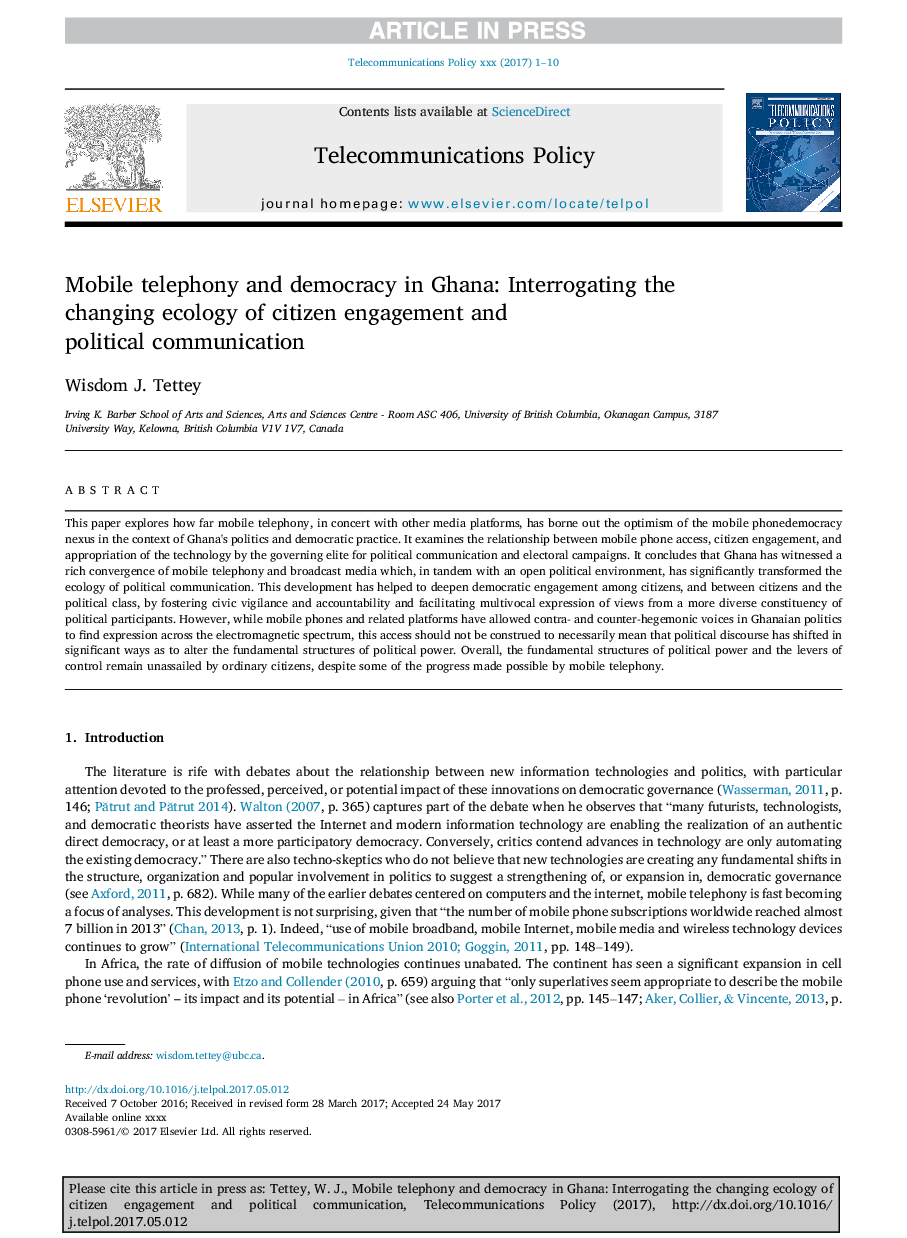| Article ID | Journal | Published Year | Pages | File Type |
|---|---|---|---|---|
| 4973265 | Telecommunications Policy | 2017 | 10 Pages |
Abstract
This paper explores how far mobile telephony, in concert with other media platforms, has borne out the optimism of the mobile phonedemocracy nexus in the context of Ghana's politics and democratic practice. It examines the relationship between mobile phone access, citizen engagement, and appropriation of the technology by the governing elite for political communication and electoral campaigns. It concludes that Ghana has witnessed a rich convergence of mobile telephony and broadcast media which, in tandem with an open political environment, has significantly transformed the ecology of political communication. This development has helped to deepen democratic engagement among citizens, and between citizens and the political class, by fostering civic vigilance and accountability and facilitating multivocal expression of views from a more diverse constituency of political participants. However, while mobile phones and related platforms have allowed contra- and counter-hegemonic voices in Ghanaian politics to find expression across the electromagnetic spectrum, this access should not be construed to necessarily mean that political discourse has shifted in significant ways as to alter the fundamental structures of political power. Overall, the fundamental structures of political power and the levers of control remain unassailed by ordinary citizens, despite some of the progress made possible by mobile telephony.
Related Topics
Physical Sciences and Engineering
Computer Science
Information Systems
Authors
Wisdom J. Tettey,
